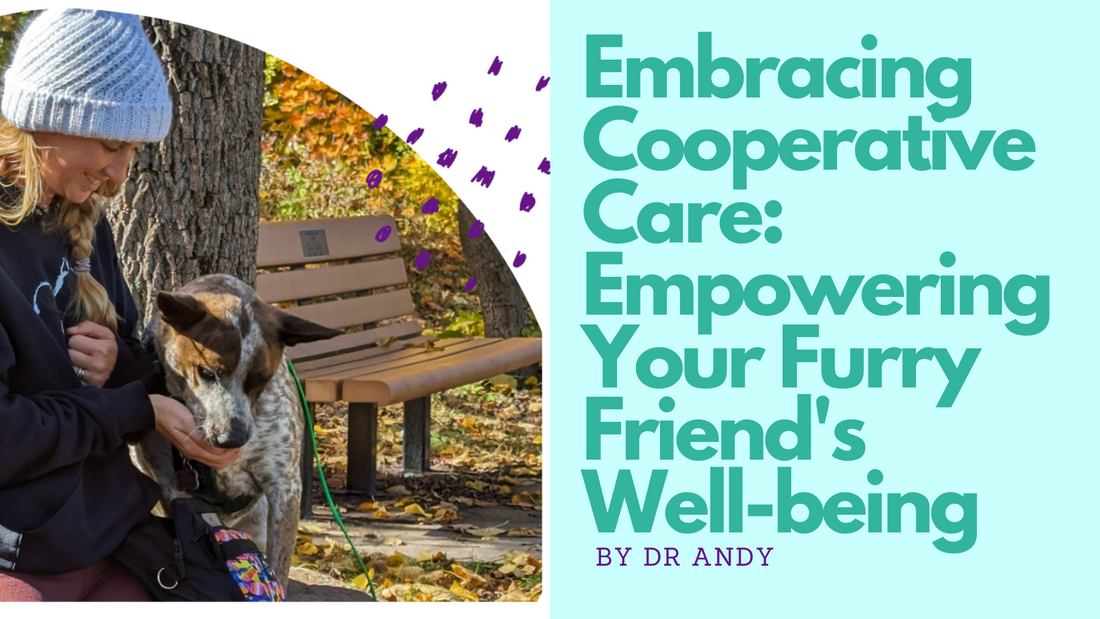Table of Contents
- Embracing Cooperative Care: Empowering Your Furry Friend's Well-being
- Understanding Cooperative Care: A Path to Calmness
- The Surprising Power of Cooperative Care
- Applications of Cooperative Care Training
- A Step Towards a Brighter Future
- Join Us in Paving the Cooperative Path
Embracing Cooperative Care: Empowering Your Furry Friend's Well-being
Imagine the anxiety of sitting in a dentist's chair, unable to communicate your discomfort or ask for a pause during a procedure. Now, envision your beloved pet facing a similar situation without the ability to express their feelings. Just as we cherish control over our experiences, our furry companions also benefit from a sense of agency. Cooperative care, a revolutionary approach in animal training, allows pets to actively participate in their own healthcare. This approach reduces stress and fear, improving their overall well-being.
Understanding Cooperative Care: A Path to Calmness
At some point, we've all dreaded medical appointments or grooming sessions. Animals also experience similar apprehensions when it comes to veterinary exams or uncomfortable procedures. Cooperative care teaches animals they have a say in such situations, enhancing their sense of control. Research shows that this sense of empowerment not only minimizes stress and fear in animals but also boosts their confidence and tolerance for handling during various procedures.
Like us, animals benefit greatly from the opportunity to communicate their discomfort or request a break. Just as we'd appreciate a considerate dentist who pauses when we need it, cooperative care training empowers pets to signal when they're uncomfortable. This ensures a more positive experience for both them and their caregivers.
The Surprising Power of Cooperative Care
One might assume that allowing animals a sense of control would lead to refusal or avoidance of unpleasant experiences. However, the opposite is true when cooperative care is appropriately introduced. Animals trained using this method not only willingly participate in potentially uncomfortable situations, but they also display improved cooperation and reduced stress levels.
Applications of Cooperative Care Training
In recent years, cooperative care training has gained popularity among companion animals. The possibilities are vast, with examples such as horses calmly standing for injections, dogs confidently offering their paws for nail trims, and cats volunteering for ear exams. Even parrots can be taught to willingly participate in procedures like blood draws. Beyond improving animal welfare, cooperative care training enhances the safety of both animals and caregivers by minimizing the risk of injuries during handling.
A Step Towards a Brighter Future
Cooperative care training should be a priority for all animal guardians and trainers. However, it's essential to remember that if an animal's health or well-being is at immediate risk, alternative low-stress handling methods or veterinary sedation should be considered. Once the animal's immediate needs are addressed, cooperative care training can be implemented to create a more positive experience for future procedures.
Join Us in Paving the Cooperative Path
If you're ready to embark on this transformative journey towards cooperative care with your furry friend, consider reaching out to Do Better Training. Dr. Andy specializes in guiding animals and their caregivers through the process of embracing cooperative care. By allowing your pet to actively participate in their healthcare, you not only enhance their quality of life but also build a stronger bond based on trust and understanding.
Cooperative care is not simply a training method; it's a way to empower your pet and ensure their well-being during necessary but potentially uncomfortable situations. Contact Do Better Training today to schedule a consultation and take the first step towards a more cooperative and stress-free future for you and your beloved companion. Your pet's happiness and comfort are just an email away!

